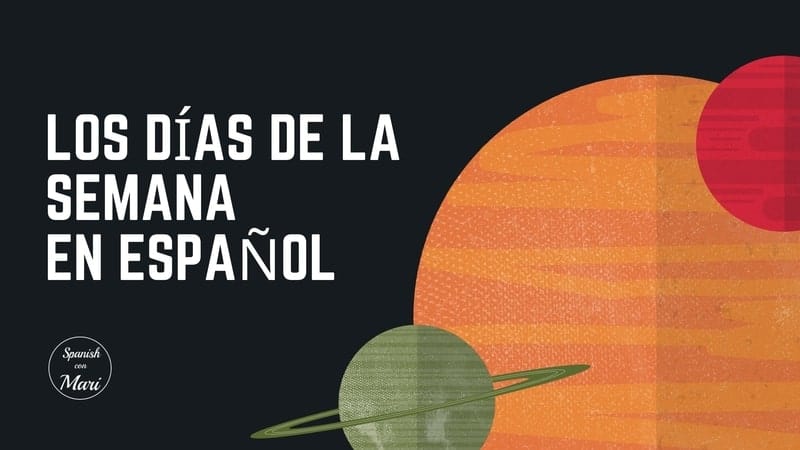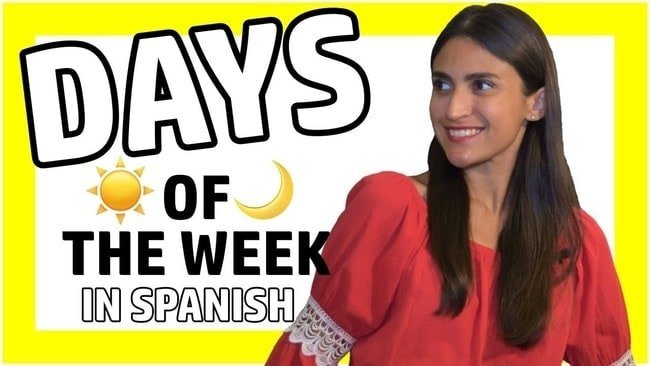
In this new post of Spanish con Mari we are going to continue Learning Spanish. I have to say that this article is not only for beginners, it is very informative also for intermediate and advanced learners. So, continue reading this ‘Days of the week in Spanish’ post because you are going to learn something very interesting about the Spanish language.
The days of the week were named after the planets known in ancient times and with which the Romans had consecrated their gods. And as you know, Spanish is a language that comes from Latin, therefore we inherit many of its words.
LUNES
The first day is Monday. It was dedicated to the closest celestial body, the moon, la luna in Spanish and in Latin lunae die, from which lunes derived in Spanish.
MARTES
The second day is Tuesday. It takes its name from Mars, Marte in Spanish, the god of war.
MIÉRCOLES
The third day is Wednesday and it corresponds to Mercury, Mercurio in Spanish.
JUEVES
The fourth day is Thursday and it comes from Jupiter, Júpiter in Spanish.
VIERNES
The fifth day is Friday. It is dedicated to Venus, Venus in Spanish.
SÁBADO
The sixth day, at the beginning, was consecrated to Saturn, Saturno, in Latin ‘saturni dies’, from which evolved, for example, the current Saturday in English.
However, for those turns that life and words take, in other languages and due to the influence of Christianity, the day of Saturn was replaced by the Latin sabbatum, taken from the Hebrew shabbat. This is why in Spanish it is SÁBADO.
DOMINGO
And finally, what will be the story of the last day?
The last day is Sunday, domingo in Spanish. The word domingo has a curious history. The seventh day was originally dedicated to the sun – hence Sunday in English or Sonntag in German – but ended up becoming the Lord’s Day, Dominicus in Latin, where domingo comes from.
Days of the week in Spanish
WATCH MY VIDEO LESSON

Let’s do a review:
- Monday – LUNES
- Tuesday – MARTES
- Wednesday – MIERCOLES
- Thursday – JUEVES
- Friday – VIERNES
- Saturday – SÁBADO
- Sunday – DOMINGO
So, what day is today?
¿Qué día es hoy?
Let me know in the comments.
